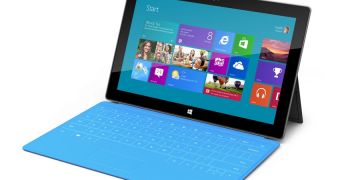In June, Microsoft made official a unique device, marking a first in the company’s history, namely the Windows 8-based Surface tablet.
Given the company’s focus on the development of software, it came as a big surprise that it would also enter the hardware business, and many hardware partners started to raise questions on the matter.
Starting with the week after Surface’s unveiling, reports on unhappy manufacturers started to emerge, as some of them began expressing their worries regarding Microsoft’s plans on the tablet market.
Some of these voices were louder, such as Acer CEO JT Wang’s, who recently reiterated to Financial Times his concerns regarding Microsoft’s plans to enter the hardware business.
Acer has been a Microsoft partner for a long time and has loaded Windows on a variety of products so far.
However, if Microsoft stops producing only software and makes the step towards having more of its own-branded Windows hardware, it might lose many of its partners.
In fact, the Redmond-based company has already confirmed that it was aware of this state of facts, and that the release of Surface might affect its relation with hardware makers.
"Even if many users view these devices as complementary to a personal computer, the prevalence of these devices may make it more difficult to attract applications developers to our platforms," Microsoft said the filing with the SEC.
"In addition, our Surface devices will compete with products made by our OEM partners, which may affect their commitment to our platform."
From Microsoft’s perspective, however, Surface is a good thing for Windows 8. In fact, the company claims that the tablet PC was designed specifically for the platform and that its partners should look at it and be inspired when it comes to the designing of next-gen devices.
The slate was built so that it would bring Windows 8 to the surface, Microsoft said at launch. However, it also suggested that there was no other similar PC as good for the OS as the Surface.
Microsoft hasn’t unveiled any plans to make further steps into building its own hardware beyond Surface, but, if the tablet PC does prove successful, there is a great chance that it might actually come up with new devices.

 14 DAY TRIAL //
14 DAY TRIAL //